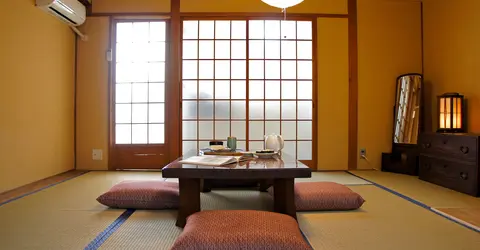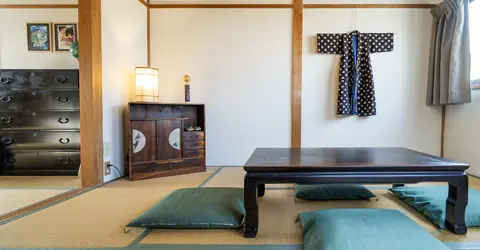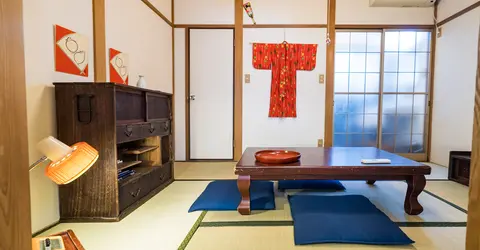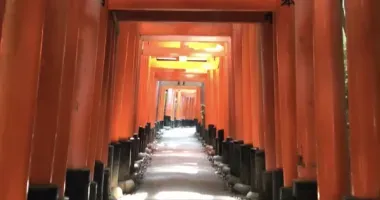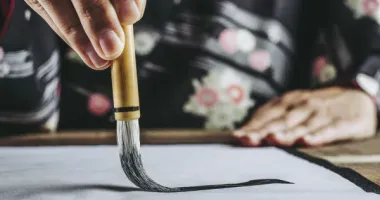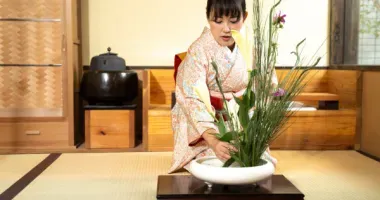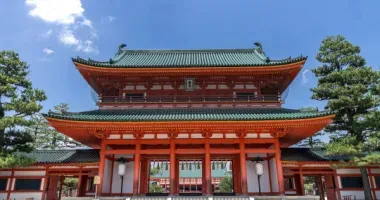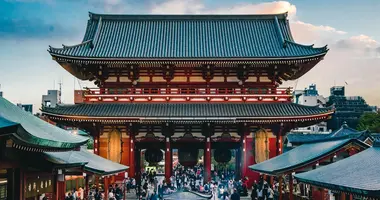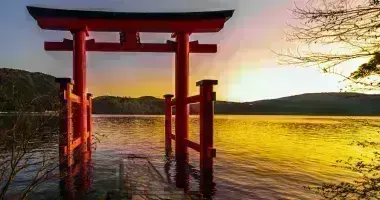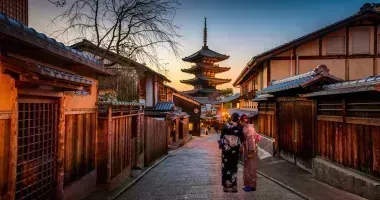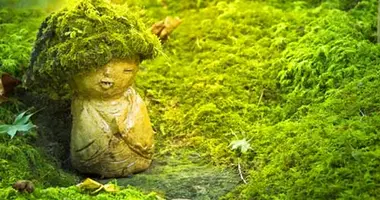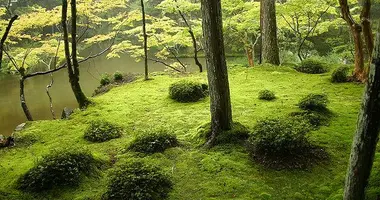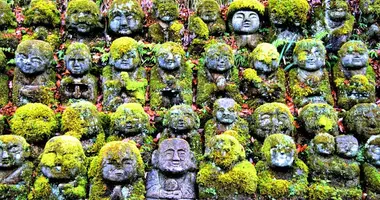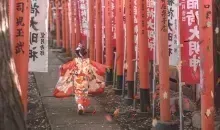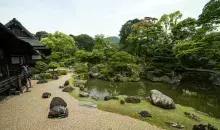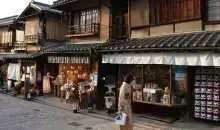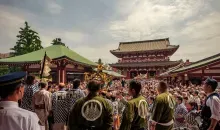Honen-in 法然院
On the way to salvation
Not far from Ginkakuji or the Silver Pavilion, above the Philosopher's Path, Honen-in Temple merits special attention. Not to be missed.
On the wooded heights of the fallen capital, after having made the climb, then crossing the threshold to the grounds, is the paradise of Amida, the Japanese name of the Amitabha Buddha, which seems to offer itself to all who flock to this Eden full of charm. Here, the exterior glorifies the interior.
A dry garden, white sand carefully raked by monks, who change the symbolic forms depending on the season, a moss garden, a pond making it possible to live fully in the present moment. A setting adapted tp silence. Stone statues stand watch. But that is not all. For over twenty years, Shinsho Kajita, the senior monk of Honen-in, has been welcoming contemporary artists from around the world, as he considers that the function of creative artists is not far from that of the religious. "Today, he said, many visitors come to admire the Japanese Buddhist artistic heritage. But it must be remembered that in their time, these masterpieces were regarded as contemporary art. "
Even if some are offended to see the creations or to hear bossa nova in a place dedicated to Amida, the monk organizes nearly a hundred events every year, considering that Buddhism goes beyond social morality. Art, the expression of life, generate a dynamic, even though sometimes it reflects a dark vision of the reality of the world. Something to contemplate.
Honen
This temple is dedicated to the monk Honen (1133-1212). Founder of the Jodo-shu Buddhist school, the Pure Land sect, one of three Amidist movements, he advocated the simplification of the rites. A charismatic person, he helps to make Amidism popular and prosperous in Japan. According to him, the simple invocation of the Supreme Buddha gives access to heaven...
Souls sleep peacefully
Some illustrious deceased rest the adjoining cemetery. Make a posthumous encounter with remarkable men: the economist, writer and humanist poet Kawakami Hajime (1879-1946), defender of peasants and workers, who translated The Capital, by Karl Marx into the language of Basho; the philosopher Shuzo Kuki (1888-1941) who studied under Martin Heidegger and had Jean-Paul Sartre for tutor, and the writer Tanizaki Junichiro (1886-1965), author of the famous In Praise of Shadows. Like gatekeepers, imperious trees protect these graves.








